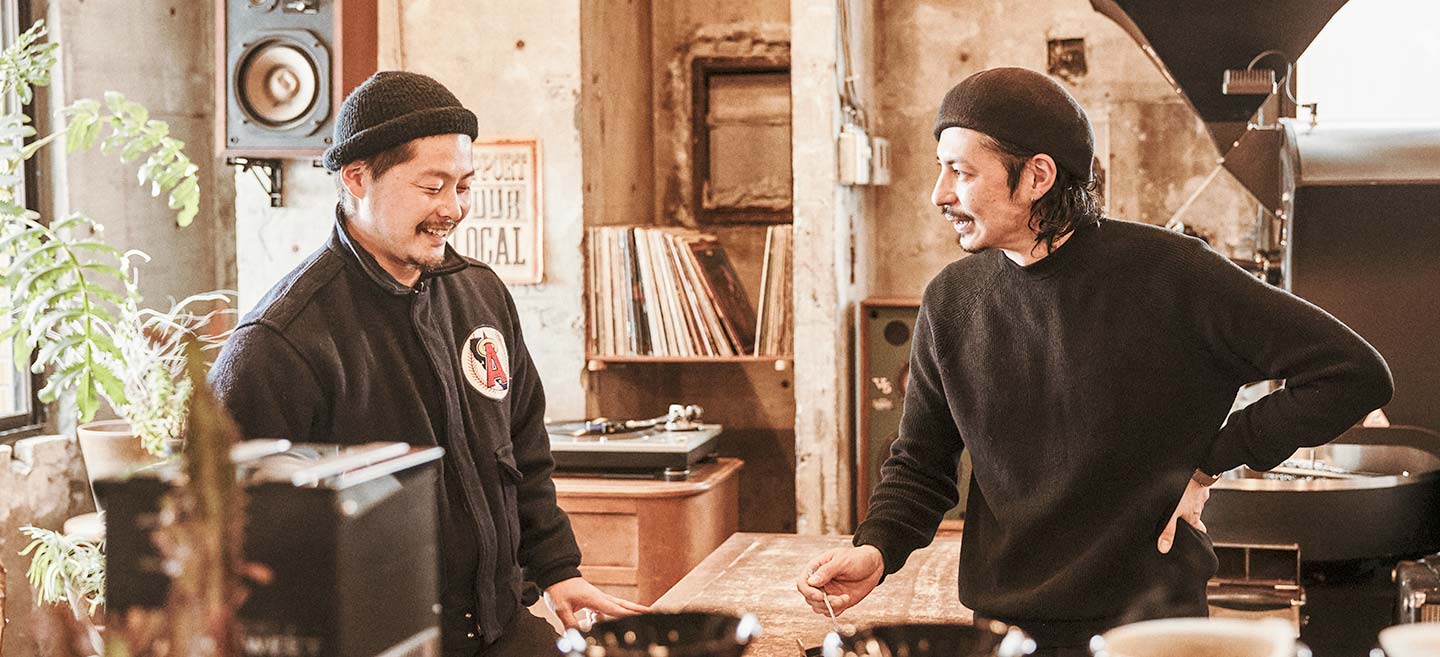
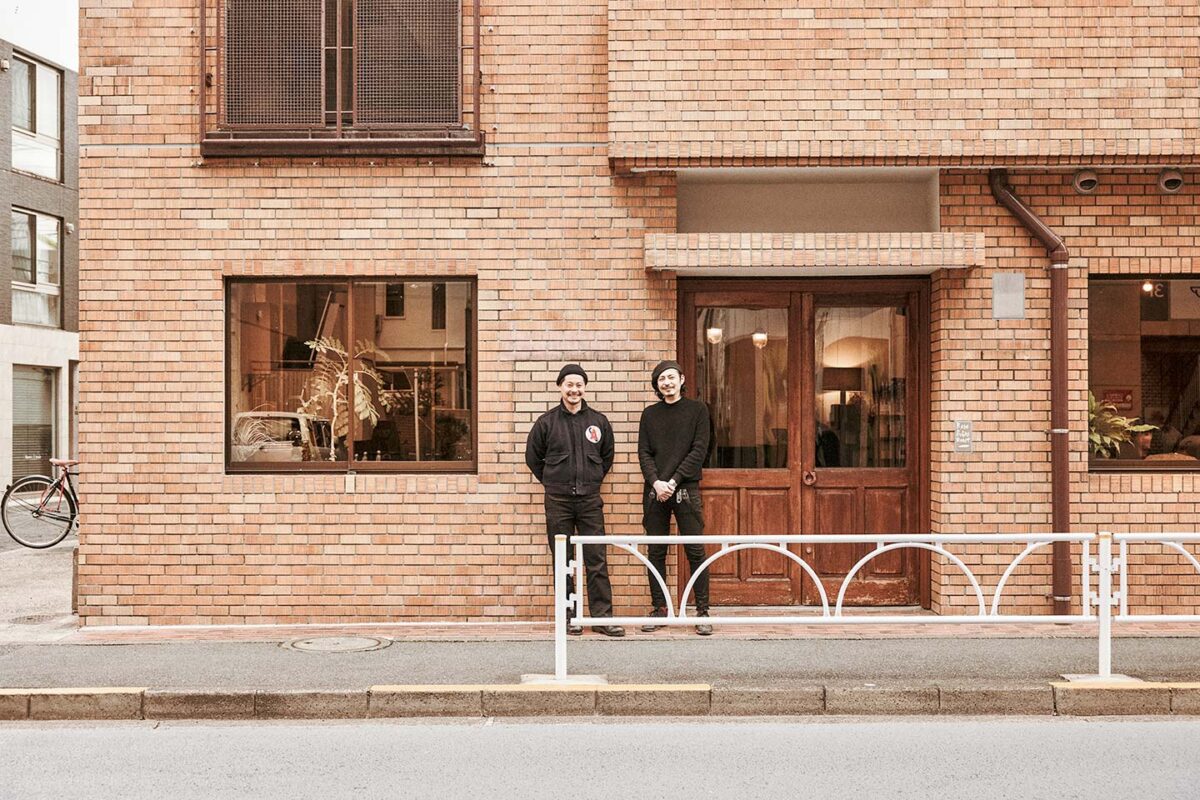
20 minutes by local train from Shinjuku lies the hip suburb of Setagaya. With its many parks, museums, trendy shops, and a university campus, the area is popular with everyone from students to families and retirees. Specialty coffee shop Raw Sugar Roast is a short walk from the station down a quiet residential street.
Opened in spring 2022, Raw Sugar Roast brings together the talents of Masashi Oda, a roaster with experience in Japan and abroad, and head roaster Yuya Kosakada, a professional barista with more than ten years experience. Their paths merged when they realized they both wanted the same thing: to change the coffee industry and broaden the potential of baristas. We spoke to Masashi and Yuya to find out how they are making this happen.
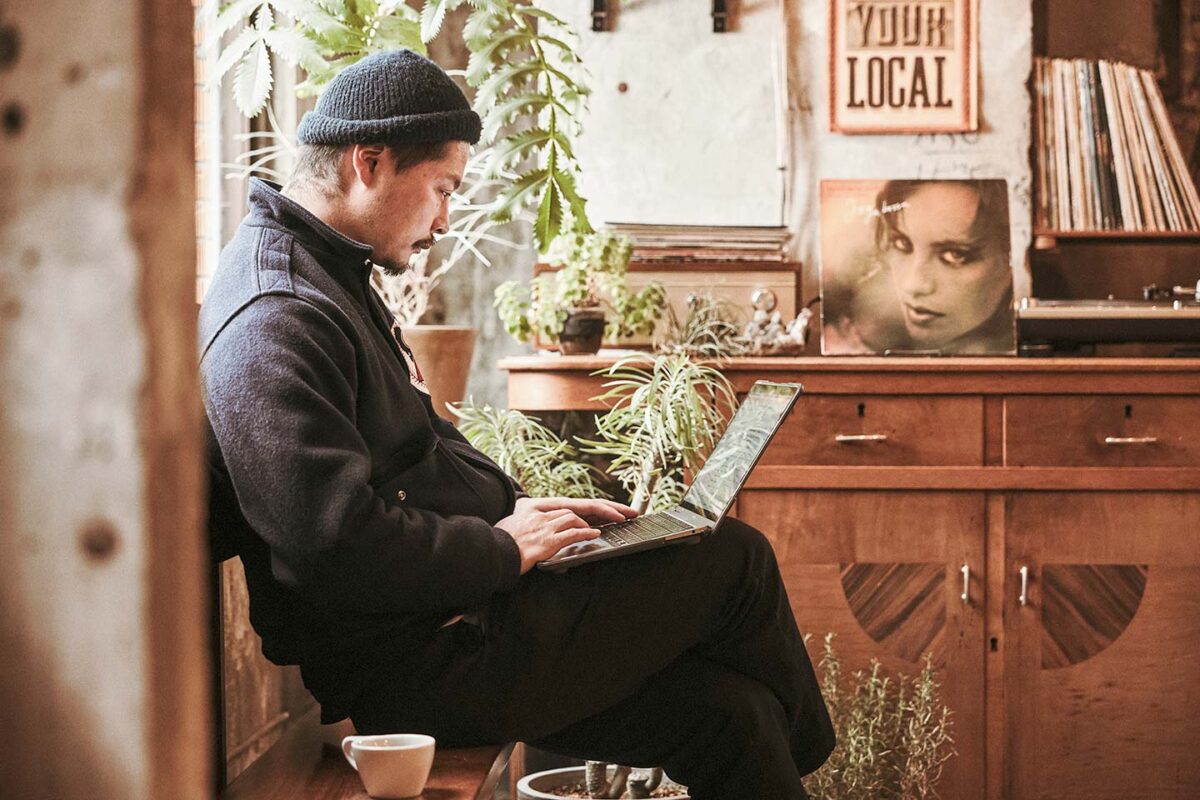
Finding the most direct route to the customer
Raw Sugar Roast is operated by Swim who opened their second cafe, Amber, in Tokyo’s Jiyugaoka in November 2022. The cafe was launched as an independent brand with a new concept, so unlike Raw Sugar Roast, where the focus is exclusively on coffee, Amber has a breakfast menu and serves alcohol.
Masahi: “People don’t see a barista as a job with a future. Most people quit in their 30s because they feel like they’ve achieved what they can in that role. But a barista should not be limited to working in a cafe, or winning a competition. If we show how you can have a professional career as a barista, and support your family doing it, then less people will leave the industry.”
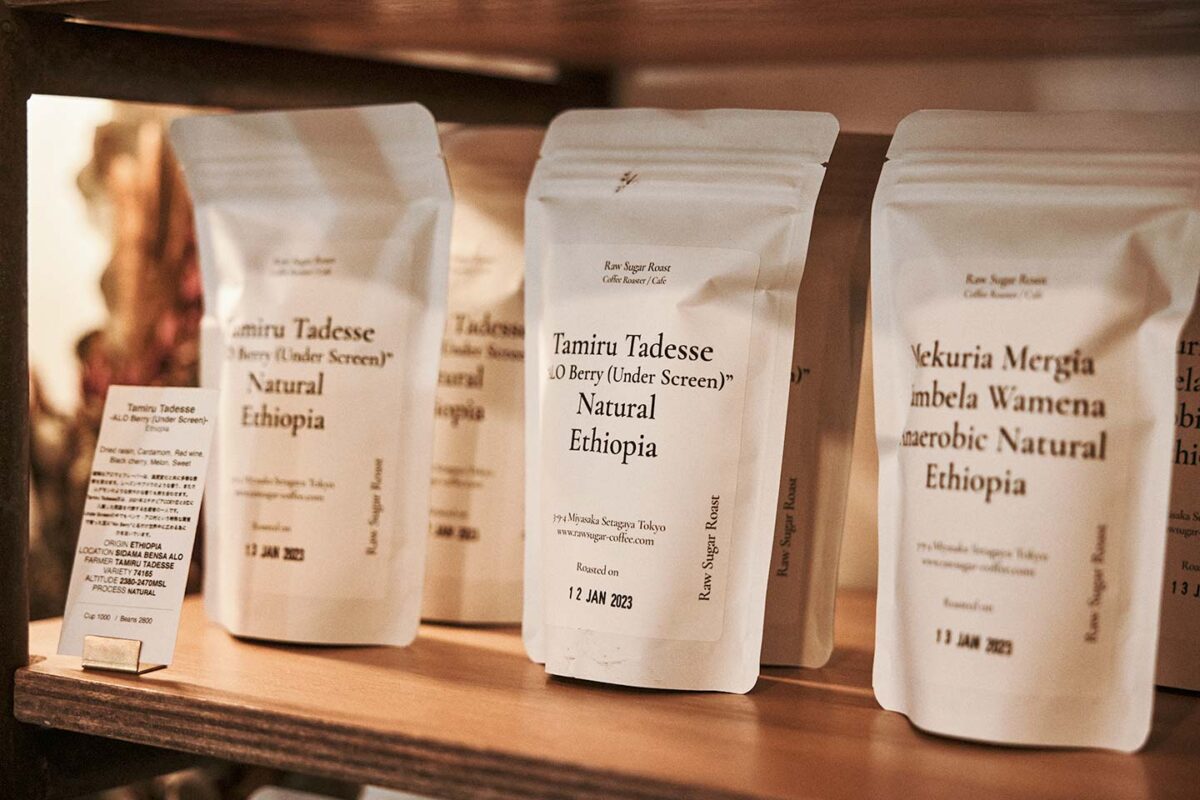
As a professional barista, Yuya’s role includes designing step-by-step guides for brewing, providing training, and consulting services for producing and branding. He is also looking at opening a green bean import and export business, and hiring a team of machine maintenance experts to add to the services they provide.
Every aspect of their business starts with good coffee. Even if that means going against the “customer is always right” principle of hospitality.
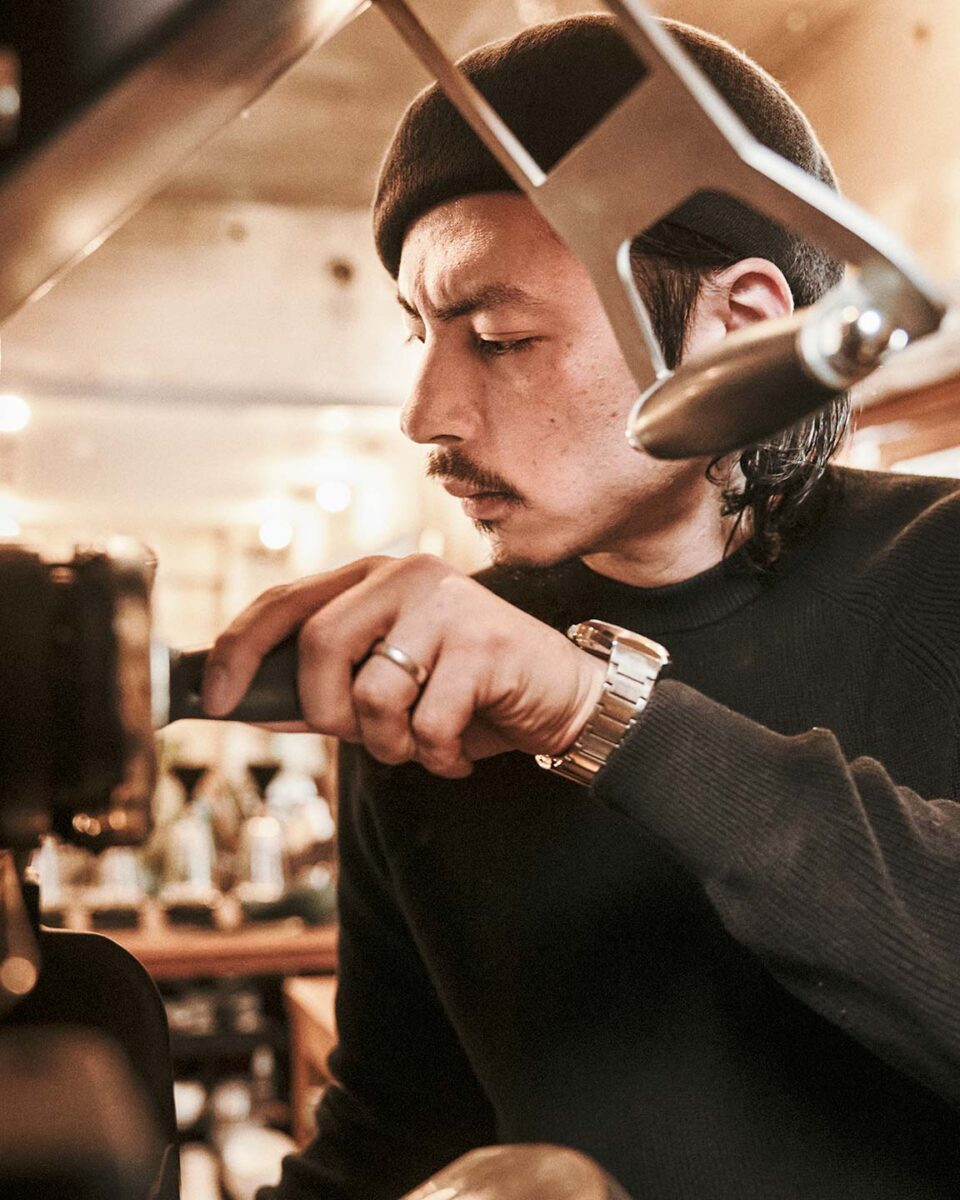
Yuya: “Kenyan coffee has the brightest acidity among the major origin countries. But our concept of acidity is very different to the standard concept. So when a customer says “I’d like a coffee with no acidity,” we’ll actually recommend a Kenyan. And more often than not, they enjoy it. It’s our job to challenge the preconceptions and stereotypes that our customers hold.”
To challenge anything, you first need to be standing on a solid foundation. That’s why head roaster Yuya designed a detailed step-by-step brewing guide to ensure that the Raw Sugar Roast quality could be preserved whoever was using their beans to make the coffee.
“But no matter how detailed the guide, the flavor is always going to be influenced by the person who brews it. And I worry that the true value of coffee is not being communicated to the customer. The producer probably feels the same when the beans leave their hands. Every person in the process is a filter. We have to make sure that when it passes through us, we don’t weaken the message, but communicate the value as much as we can. This is something I focus on a lot when I’m training my staff.”
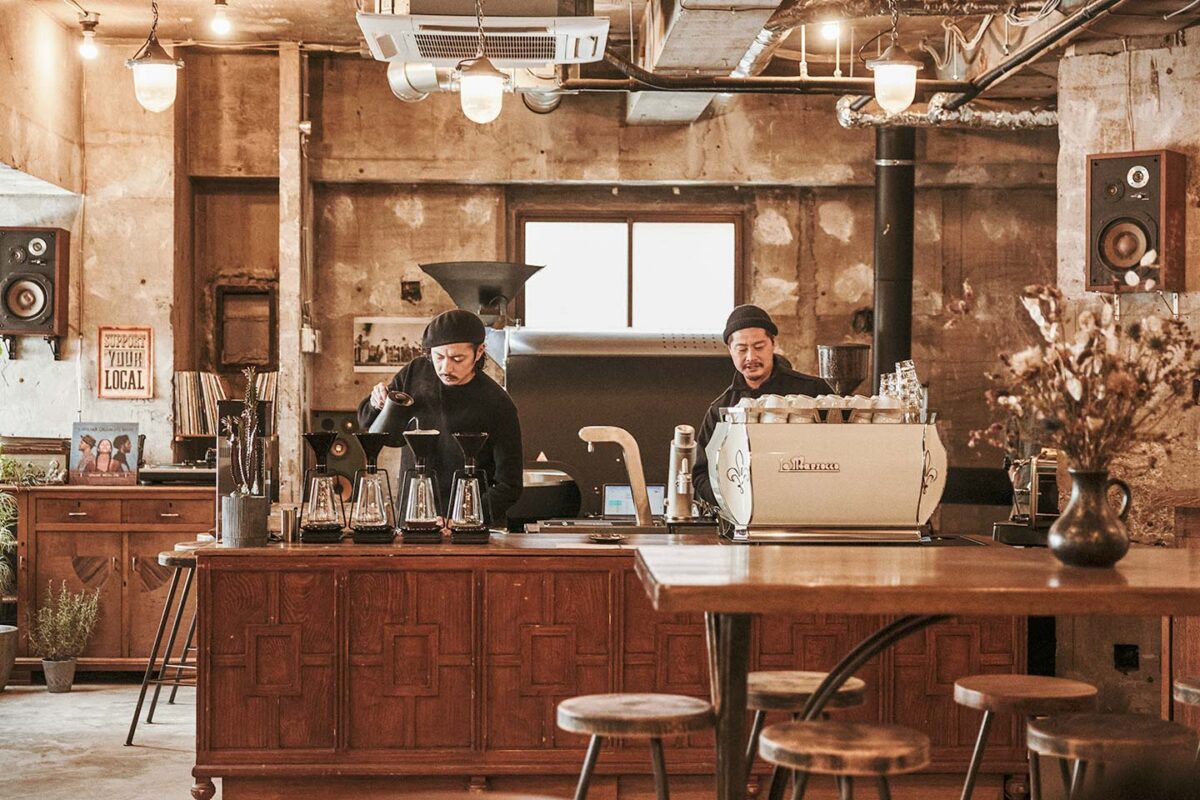
For more than ten years, Yuya has worked on perfecting the art of being a barista. His two mottos, “Make an impression with a single cup” and “Break the conventions of coffee” come from his desire to find the most direct route to the customer. A former musician, Yuya sees an overlap between music and what he is trying to do with coffee.
“Even if someone buys your CD and listens to the music, it’s impossible to communicate everything you’re trying to say to the listener, because there’s a distance there. It’s the same with coffee. So I’m always trying to be conscious of that. I try not to be a filter, but be a conduit who can pass on the value in its purest form to the customer. My roasts are always about bringing out the unique character of the bean.
And even if I’m not the one serving the coffee, I want to communicate the value in as direct a way as possible. That’s why TYPICA GUIDE was such an amazing event for me. In the final round I could present and brew in front of a large audience, which is exactly the kind of opportunity I’ve been looking for.”

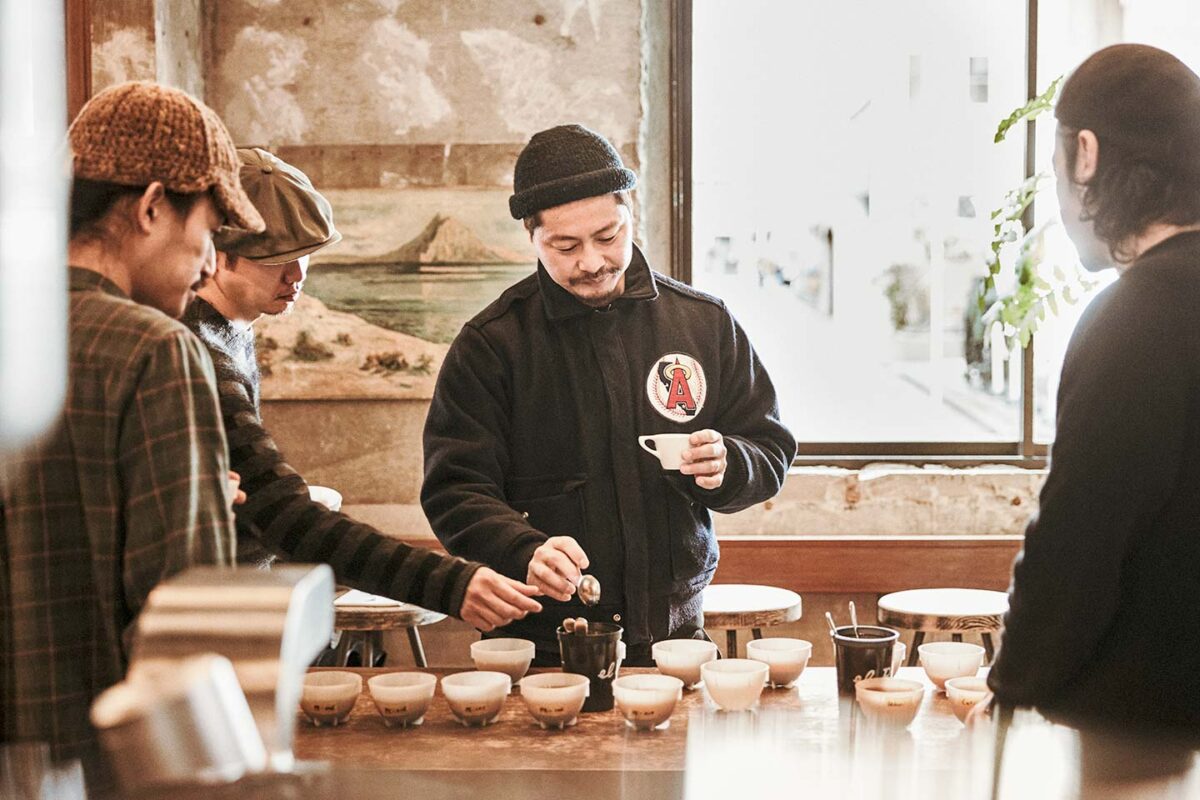
Breaking the boundaries for baristas
Masashi is responsible for the marketing and sales aspect of the business and rarely has a chance to stand behind the bar, but he originally worked as a barista.
His career began in his hometown at the specialty coffee shop, Caffe Vita in Shimane. Four years later he headed to the capital and worked at several cafes in and around Tokyo. Masashi originally wanted to become the top barista in Japan, but after studying roasting in Australia, he headed to the UK where his time at a coffee company opened his eyes to the different possibilities of the business. The UK company was a roastery without a cafe. They dealt in wholesale, training, machine maintenance and other services related to the coffee industry.
“There were only three employees, including me. But our customers included big clients like Vodafone and a franchise with several cafes in central London, so we were roasting an average of 200 to 300 kg a day. While I was there, I realized that winning a competition or having a famous name were not the only way to make a successful business.”
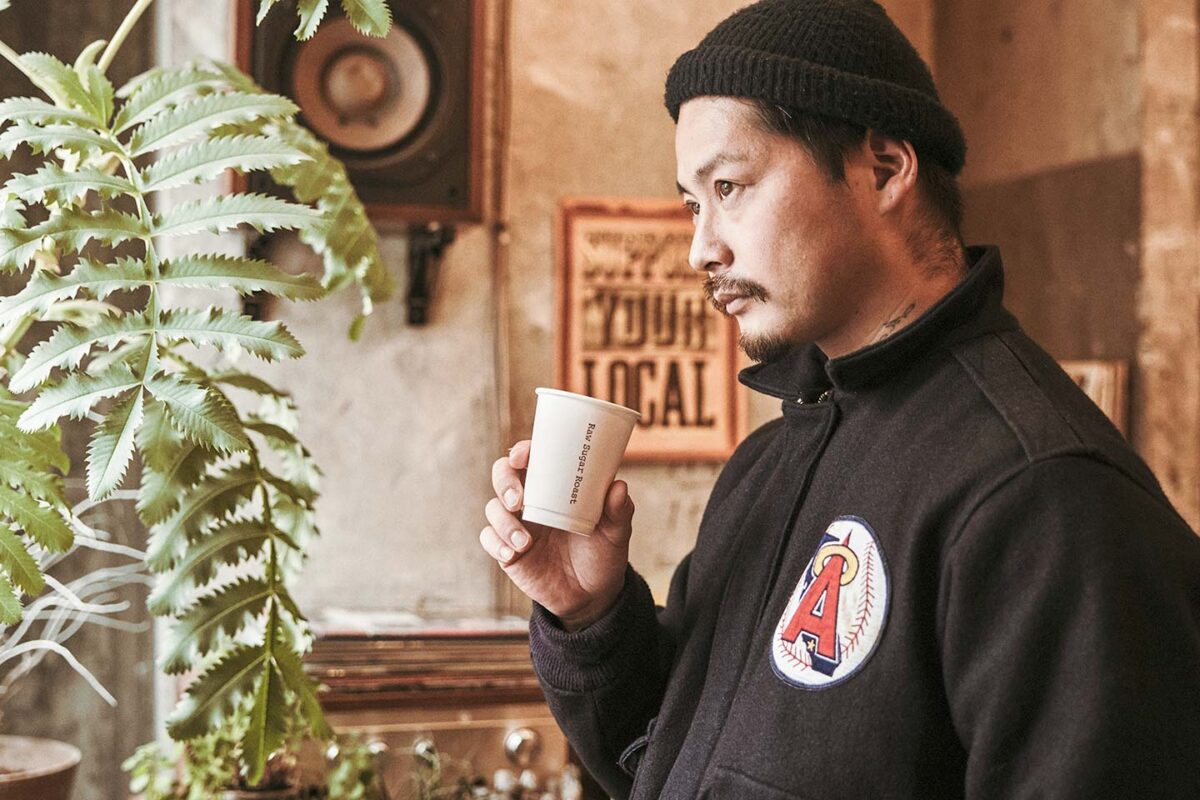
While he was in the UK, his peers in Japan were busy opening their own shops and making a name for themselves. There may have been some envy there, but Masashi had no intention of following in their footsteps. He wanted to carve out a new path, something that was not bound by previous definitions.
“When the only goal for a barista is to be the best in the industry, then it limits the potential of their talent. If you’re a talented designer, all you need is a computer to get a job. If the same could be applied to baristas, then they could use their skill and passion in other areas, and elevate the value of the industry in general.”
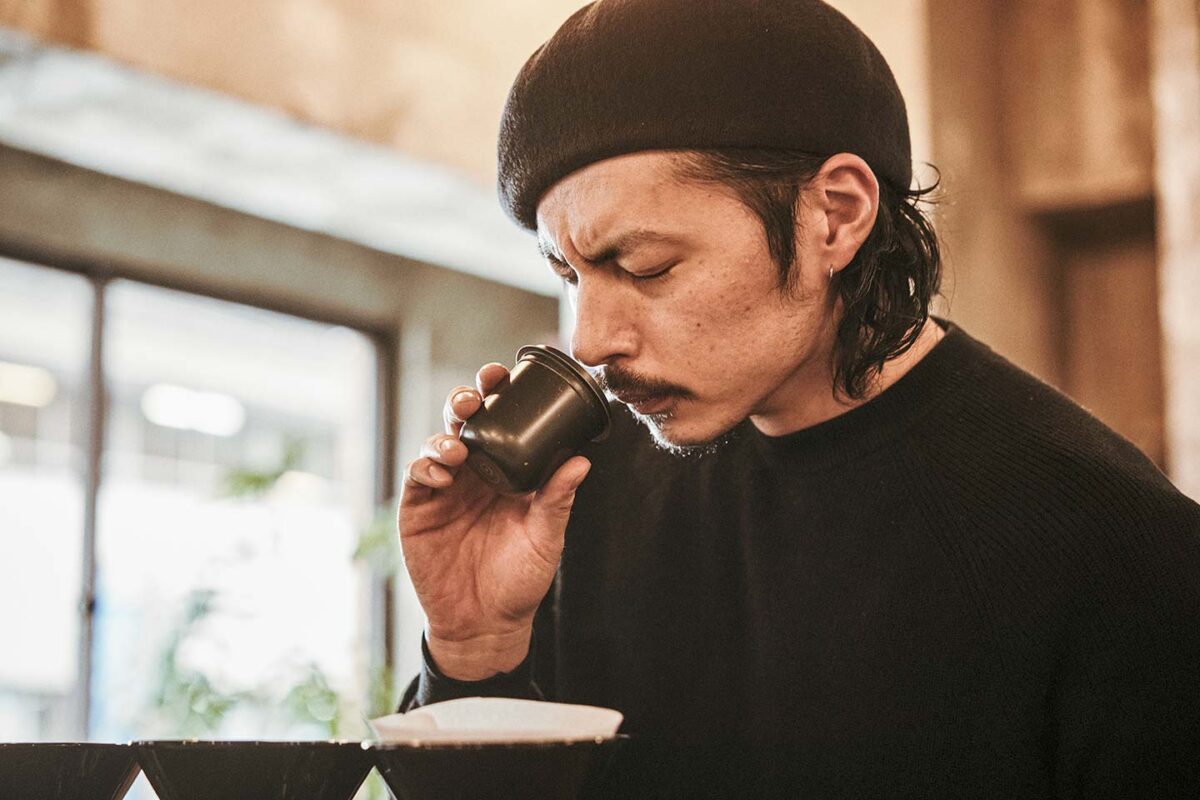
Unlike Masashi, when Yuya decided to leave his home in Hokkaido for Tokyo, it was to follow his music career in the punk scene. Coming from the anti-consumerist, non-conformist ideology of punk, perhaps it was inevitable that he would be drawn to the counterculture world of specialty coffee.
Yuya: “I see a barista as an antithesis to commodity coffee. Each cup is made by hand, it’s unique, individual. Not squirted out by a machine. If that’s not punk, I don’t know what is.”
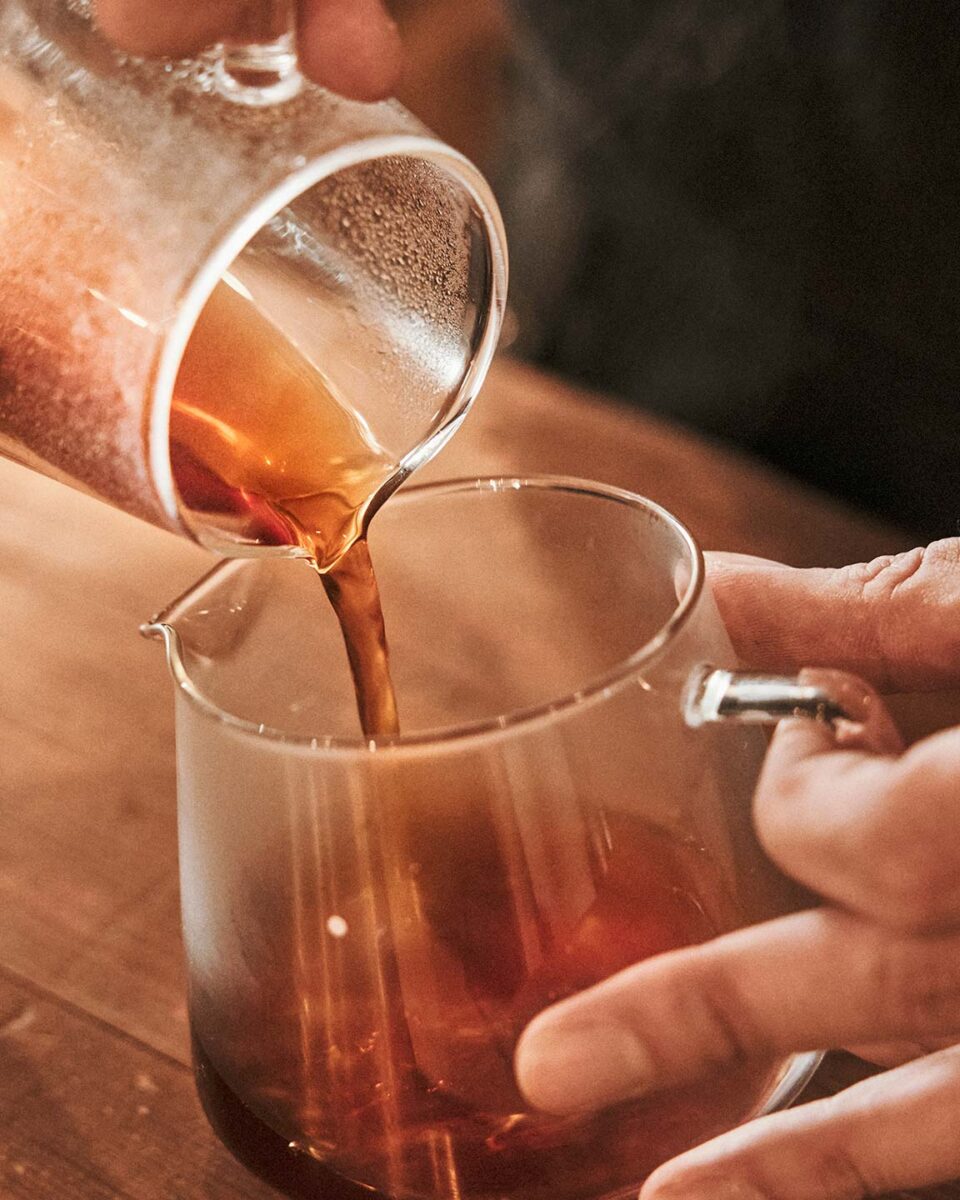
He began working at Paul Bassett, of the World Barista Championship winning Australian barista of the same name, and later helped launch Glitch Coffee & Roasters with owner Suzuki. Ten years on and nearing thirty, Yuya began to wonder if it was time to make a change.
“I didn’t know where I was heading. I still wanted to communicate the value of coffee, but when I realized that could mean doing it one cup at a time, for all eternity, I began to question my path.
At the same time, I knew I didn’t want to leave the industry. I actually considered becoming a writer at one point because it would allow me to directly communicate with a bigger audience in one go. But my customers told me it would be a waste of my talent to quit now, so I started thinking of what else I could do.”
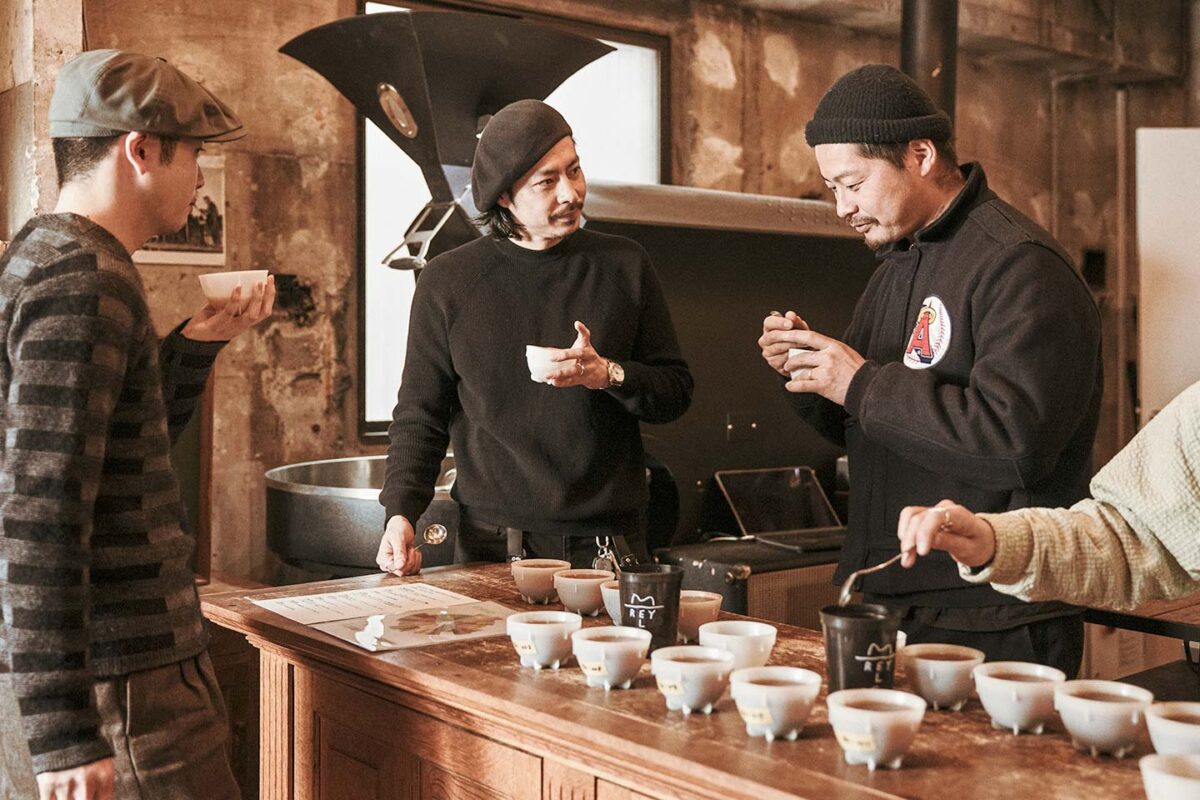
Masashi and Yuya were both searching for a way to make a change in the industry when their paths converged in 2020. They immediately knew they could do so much more working together.
Masashi: “Two people are always going to make a bigger impression than one. And when it comes to the flavor of the coffee, having these two perspectives – me from the business side and Yuya from the brewing side – means that the flavor is going to be much better than just one.”

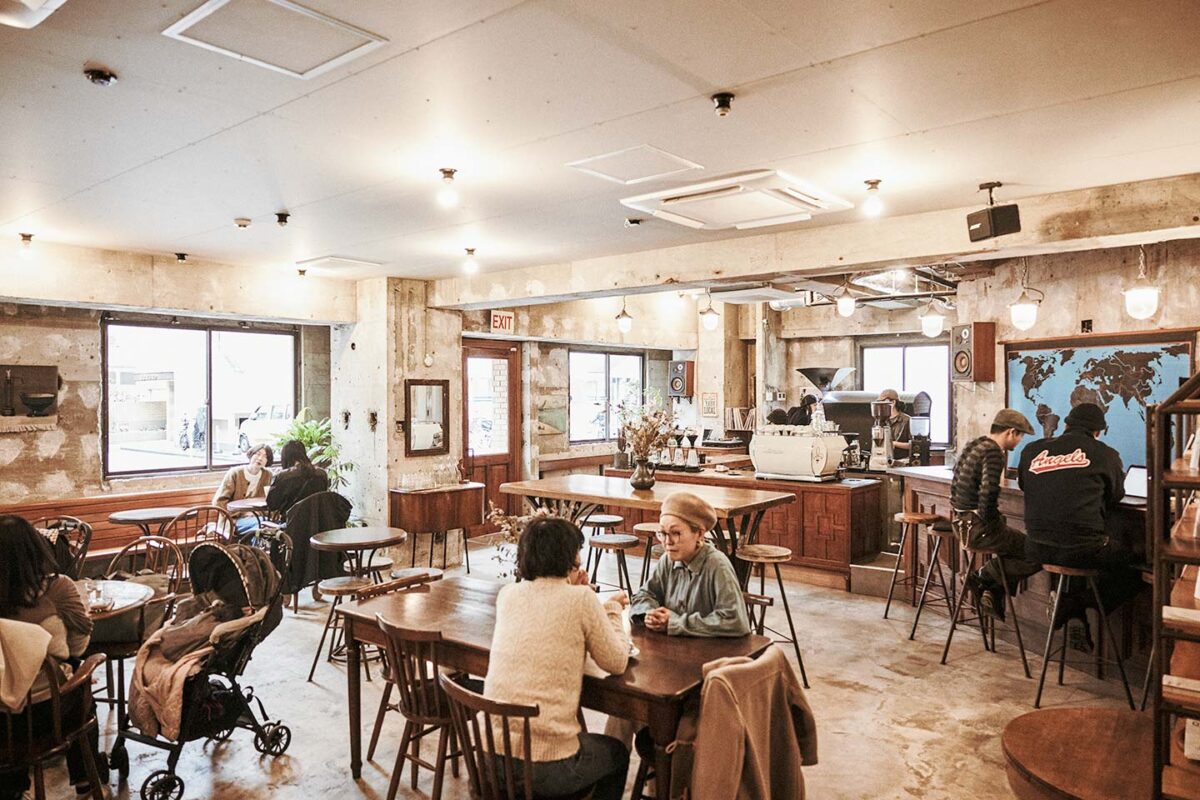
Quality will always draw a crowd
Spring 2021, inspired by Masashi’s experience in the UK, the pair opened a roastery near Haneda Airport in Tokyo.
“Haneda has always been the home of workshops and craft shops. There’s something personal about the area and it has a real character to it. So I thought it would be the perfect place to start something new.”
The freedom of choosing their own beans and roasting the coffee to sell to cafes and restaurants was something they both enjoyed, but they missed the interaction with the end consumer.
They began to question their ability to make a good roast, when they had little to no contact with the customer. And so Raw Sugar Roast was born. Now they could see the reaction of the customer first hand. This was the key ingredient they had been missing.
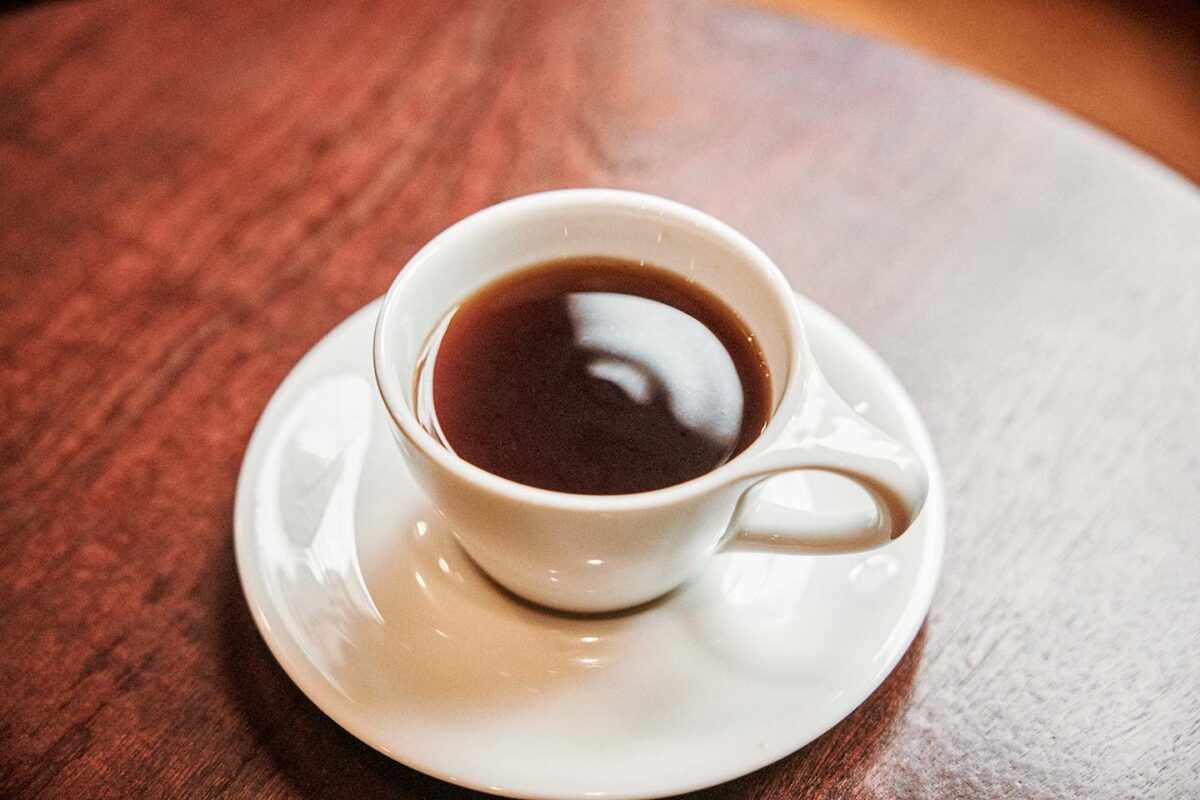
Masashi: “One of the main reasons I went abroad is because there was a coffee shop that I wanted to visit. So I knew that as long as the quality was good, people would come. And we’ve had customers from overseas at the shop. Which is awesome.”
Yuya: “In most coffee shops, I’d say 70 to 80% of orders are milk based: caffe latte, cafe au lait, you know. But in Raw Sugar Roast, even though we have these on the menu, more than 50% of orders are for black coffee. The other day we had a customer who must’ve been in her early 20s, saying “My favorite coffee is Ethiopian.” It shows how much things are changing.”

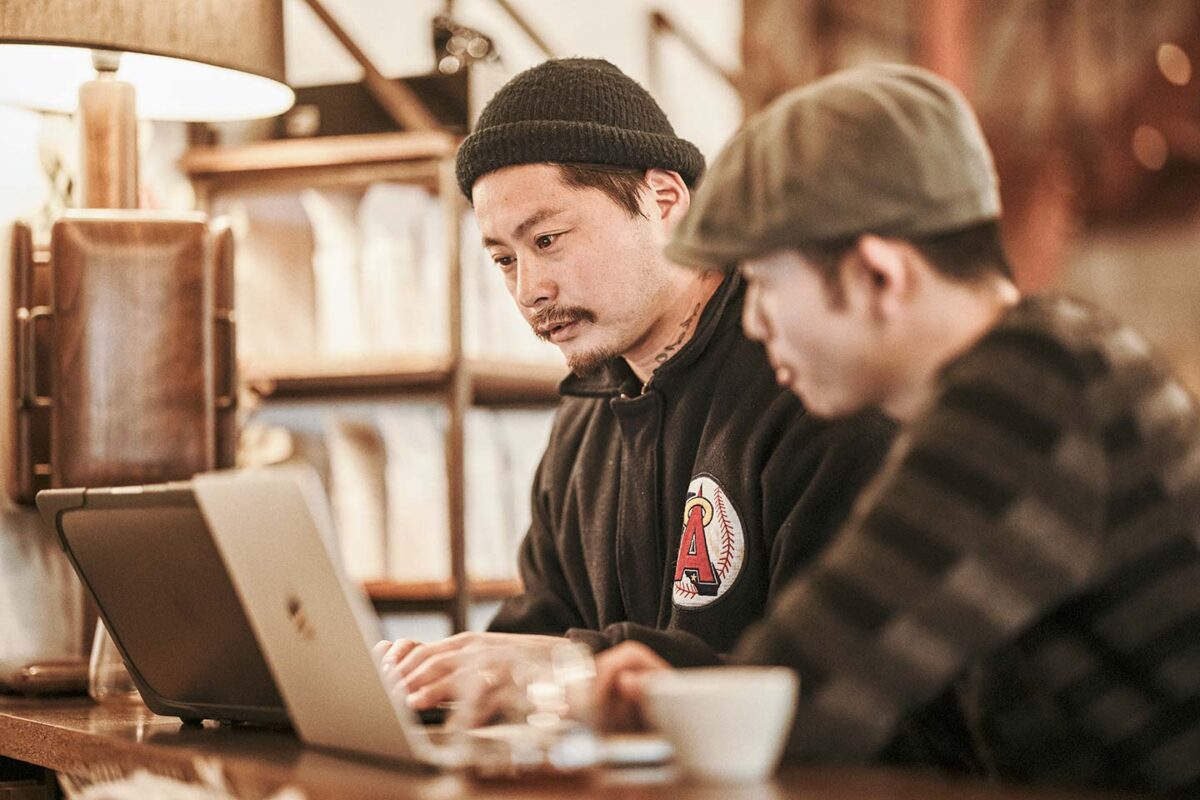
Trailblazing the way for baristas
Three years since launching their business, they now have a team of 10 staff. The two have proved that success is not about trophies or fame, but about knowledge, experience and the passion and drive to apply them.
Masashi: “When I’m hiring staff, the most important thing is how invested they are in the job itself. Why do they want to work with coffee? Where do they see themselves in the future? If they have a clear idea of where they’re heading in the industry, then I know the skills will follow.”

Yuya is leading by example. In addition to his bar work, he provides quality assurance and detailed step-by-step brewing guides for other coffee shops, holds seminars, and presents at colleges.
“If I share my experience and skills with the younger generation, then by the time they get to my age they’ll have surpassed me.”
Yuya is not content to limit the role of a barista, and is constantly pushing and widening the scope and potential for this career. Perhaps it’s the punk in him that drives him to be an antithesis to the commercialized commodity coffee industry, and bring about a change.
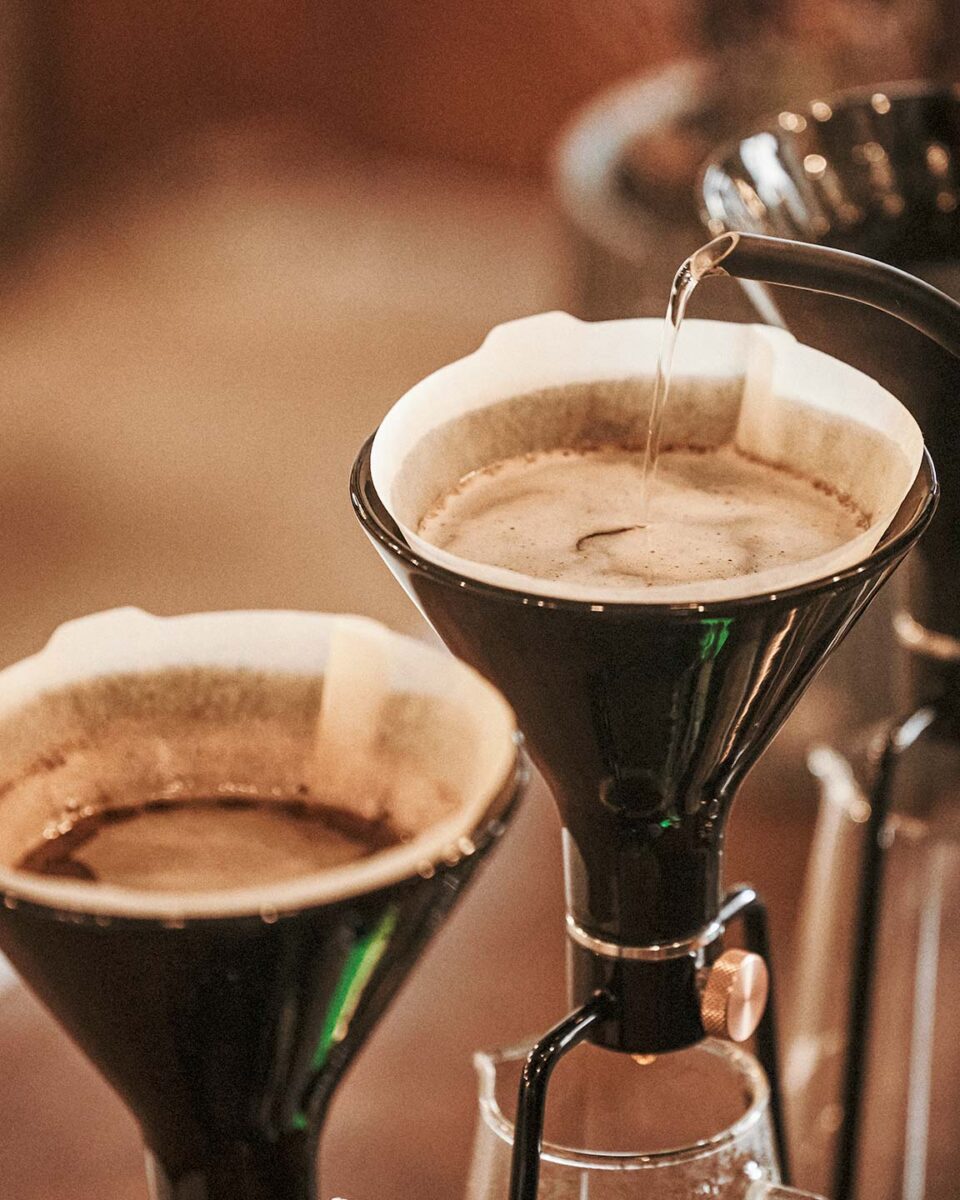
Yuya: “There’s a lot of people who come to coffee because they like the idea of being a barista, it’s like a fashion, something trendy and cool. But that’s like being forced to sing a song you don’t want to sing. ‘Passion before fashion’ might sound a bit cliched, but if the industry is saturated with people who only have a superficial interest, then baristas will eventually be replaced by coffee machines.
Coffee only has two ingredients: water and beans. It’s my job to make sure nothing gets in the way of conveying that flavor and value. That’s why I keep honing my skills to make sure I can produce a cup of coffee that best represents who I am.”
Masashi: “At the same time, you can’t run a business on passion alone. Just because something is good, doesn’t mean it’ll make a profit. One thing I learned from my time in the UK was that you need to accept that some people are not going to like what you do, and then focus on keeping your customers happy. That’s how you build a stable business. And then you can widen the base.”
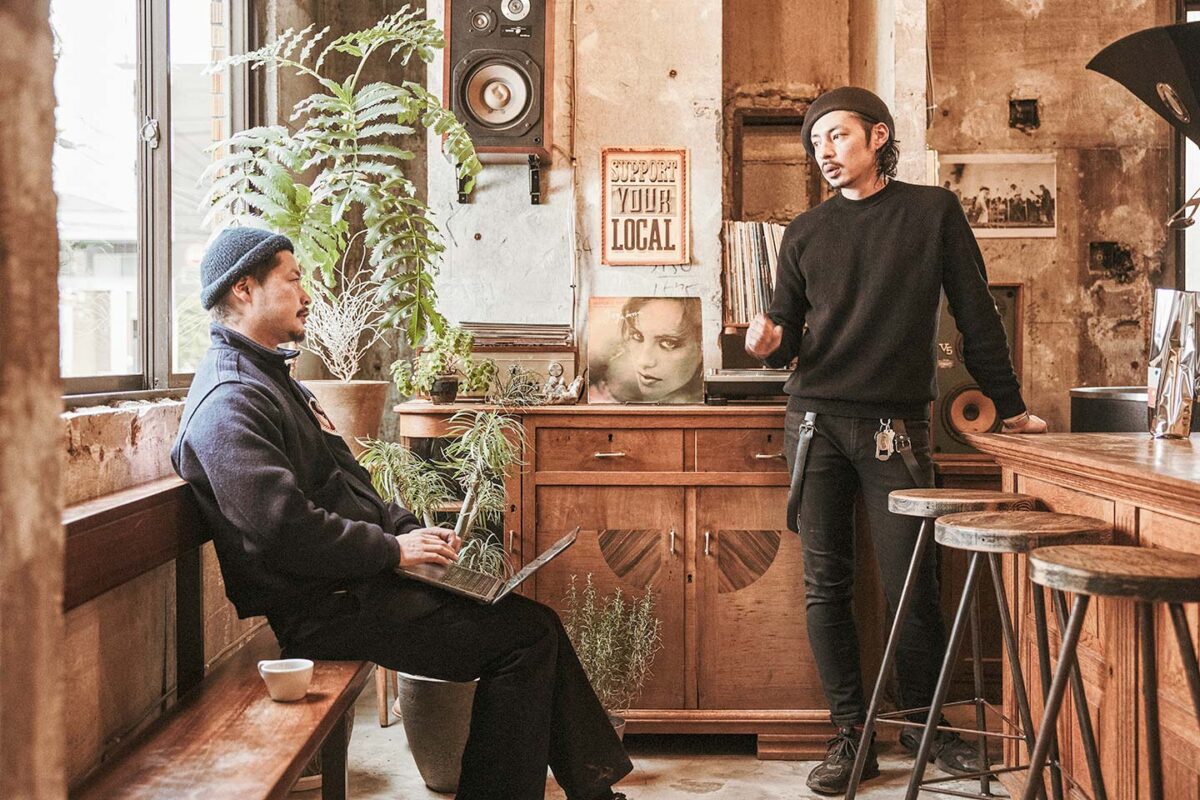
When two mavericks meet, innovation is inevitable. Masashi and Yuya have been working together for three years now, and there is no sign of slowing down. And the further these trailblazers go, the easier the path gets for those who come after.
Text:Kaori Soma
Photos:Kenichi Aikawa

MY FAVORITE COFFEE
Yuya: Coffee is part of my regular working day. I like it when the roast and the brew are both perfect. I’m always thinking about coffee, even when I’m having a glass of wine at home I’m wondering how to replicate the flavor. Alcohol, food, music, art, I take my inspiration where I can and put in my coffee.
Masashi: My favorite coffee is one I can enjoy alone. Every morning I get up at 5 am, measure out the coffee and hot water and then make a cup. It’s a habit from my days sweating it out as a barista at Caffe Vita, and I’ve been doing it for nearly twenty years. I still stick to the routine on my days off and I have to force myself out of work mode when I’m finished drinking. Then I can think about what I’m going to do for the rest of the day.

Raw Sugar Roast
- [Open]
- 8:00-18:00